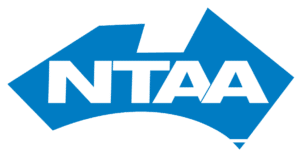The Director Identification Number (DIN) regime may have been lost in many business owners’ peripheral vision, or even dropped off the radar completely, as it has been on the horizon for some time. But it is worth keeping in mind the ramifications of the measure, as the details could become important sooner than many realise, even before this year is out.

The legislation putting the regime in place has already been passed in June last year, but the scheme is not yet in operation. This is initiated by “proclamation”, which is required to happen within two years of the legislation becoming law.
The regime is part of the government’s “modernising business registers” program, which is intended to lessen corporate phoenix activity – the process of continuing business activity of a company that has been liquidated to avoid its debts — with the DIN regime increasing accountability by making directors traceable.
DINs will be recorded in a database that will be administered and operated by a registrar from an existing (yet to be determined) government agency. The registrar will have the power to issue DINs (once satisfied of a director’s identity) and the responsibility of recording, cancelling or re-issuing DINs. The Administrative Appeals Tribunal will have jurisdiction to review decisions made by the registrar.
Under the scheme, directors will be required to have their identity verified and have a unique and permanent identifier issued to them. Companies will need to put processes in place to ensure that all existing directors apply for a DIN within the prescribed timeframe once the regime is implemented. Also, companies will need to ensure that director appointment processes include the necessary steps for new directors to apply for a DIN. The number will continue to apply even if a director leaves their position.
Within the first 12 months following implementation, new directors will have 28 days after appointment as a director to apply for a DIN. Following this time, individuals must apply for a DIN before becoming a director. For existing directors, transitional provisions should provide a period during which they will need to obtain a DIN.
The regime is expected to have other benefits such as increasing the accessibility of important information that may assist administrators and liquidators. It is anticipated that the public will be able to search the registry and view a director’s profile, including any historic relationships with different companies. For example, if the director has had past involvement with insolvent trading, that information will be available on the registry.
The legislation introduced both civil and criminal penalties for a failure to apply for a DIN within the required time frame, with criminal penalties for deliberately providing false identity information or a false DIN to a government body and intentionally applying for multiple DINs.
The procedures and documents required to obtain a DIN are not included in the legislation, and will probably be set out in a separate announcement in the coming months. However administrative changes introduced by the scheme may have practical implications when appointing directors on an urgent basis. For this reason, businesses need to be aware of the coming changes so they will be ready to implement procedures to ensure compliance with the law and the timely appointment of directors.
Related Link:
Modernising Business Registers and Director Identification Numbers
This information has been prepared without taking into account your objectives, financial situation or needs. Because of this, you should, before acting on this information, consider its appropriateness, having regard to your objectives, financial situation or needs.




